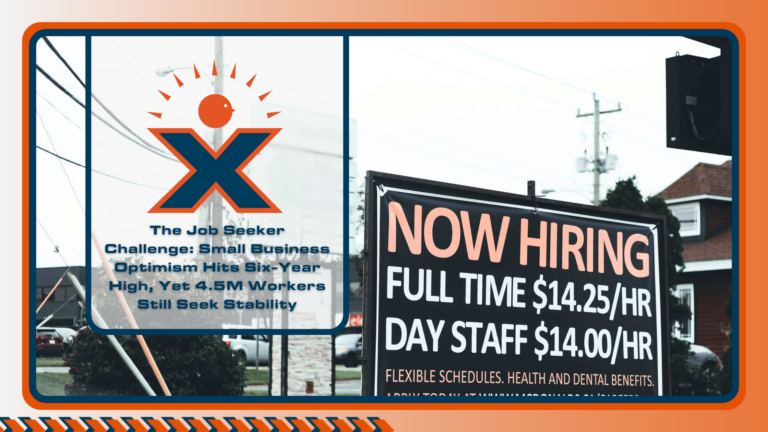When considering a new job offer, it’s easy to focus on the headline numbers like salary or job title. However, making a well-rounded decision requires a deeper dive into the company itself. From understanding the company culture to evaluating benefits, there are numerous factors to weigh before saying yes to a job offer. This company comparison checklist is designed to help you thoroughly assess each aspect of a potential employer, ensuring that you make a decision that aligns with your professional and personal goals.
Understanding the Company’s Core Values and Job Culture
Before accepting any job offer, it’s important to understand the company’s core values and culture. This goes beyond just reading the company’s mission statement on their website. Take the time to investigate how the company lives these values in its day-to-day operations. Are there specific programs or initiatives in place that reflect these values? For instance, a company that emphasizes sustainability might have strong recycling programs or invest in green technologies.
Understanding the company culture is also crucial. Culture isn’t just about the perks or the office layout; it’s about the environment in which staff work every day. “Does the company foster a collaborative culture where leaders encourage staff to share ideas, or do those at the top make all the decisions themselves?” Are employees expected to work long hours, or is there a balanced approach to work and personal life? Gathering this information can help you assess whether you would thrive in that environment or feel out of place.
You can gather insights into the company’s culture through various channels. Employee reviews on sites like Glassdoor can provide a window into what it’s really like to work there. Networking with current or former employees, attending company events, or even reviewing social media posts can also offer valuable perspectives. By combining these sources, you’ll have a clearer picture of whether this company is the right fit for you.
Evaluating Compensation Packages in an Offer
While salary is a significant component of any job offer, evaluating the total compensation package is essential. A comprehensive approach includes considering bonuses, stock options, and other financial incentives. Often, companies provide a range of perks and benefits that add significant value beyond the paycheck. For example, some employers offer performance-based bonuses or profit-sharing plans that can substantially increase your overall earnings.
Beyond direct financial compensation, it’s crucial to understand the company’s policies regarding salary raises and promotions. How often do staff receive raises, and what criteria are used to determine these increases? Are there opportunities for bonuses tied to performance, and how achievable are these targets? Understanding these factors can help you assess whether the financial aspect of the job offer meets your expectations and long-term career goals.
Benefits such as health insurance, retirement plans, and other perks play a crucial role in the overall compensation package. Sometimes, a slightly lower salary can be offset by generous benefits or a solid retirement plan. Therefore, it’s vital to consider the full package to get a true sense of what the company offers financially.
What to Look for Beyond Health Insurance
While health insurance is a fundamental component of any benefits package, it’s important to look beyond this and consider the entire range of benefits and perks. Are there retirement plans like a 401(k) with matching contributions, or does the company offer educational reimbursement for continued learning? Additionally, some companies provide unique perks such as wellness programs, on-site childcare, or gym memberships, which can significantly enhance your quality of life.
Paid time off policies are another critical aspect of the benefits package. How much vacation time do employees receive, and are there policies for sick leave or personal days? A generous leave policy can greatly affect your overall job satisfaction and work-life balance, particularly if you value having time to recharge or spend with family. It’s also worth considering any additional perks that may not be as common but can add considerable value. For instance, some companies offer staff access to unique training programs, professional development opportunities, or even flexible work arrangements. By evaluating the full spectrum of benefits and perks, you can better understand the total value the company provides beyond the base salary.
Work-Life Balance: Does the Company Offer Flexible Schedules?
Work-life balance is increasingly becoming a priority for many job seekers, and rightly so. Before accepting a job offer, it’s important to assess the company’s stance on work-life balance. Does the company offer flexible working hours or options for remote work? Are there policies in place that prevent staff from being overworked, such as limits on overtime or expectations for after-hours communication? Understanding these aspects can give you a sense of how the company values its employees’ personal time. Companies that promote a healthy work-life balance typically have lower employee burnout rates and higher overall job satisfaction. For those who prioritize a balance between work and personal life, these factors can be a deciding factor in whether to accept a job offer.
Examining the company’s culture around vacation and time off can provide further insights. Are employees encouraged to take their allotted time off, or is there an unspoken expectation that time off should be minimized? A company that respects and encourages time off might align better with your personal needs, especially if you value maintaining a healthy balance between work and life.
Assess Job Security?
Another important factor to consider before accepting a job offer is job security. Researching the company’s financial health and recent performance can provide insight into its stability. Has the company experienced any recent layoffs, and if so, what were the reasons? Additionally, analyzing the industry’s overall outlook can give you a sense of whether the company is well-positioned for future success.
It’s also helpful to look at the company’s history regarding mergers or acquisitions. These business moves can sometimes indicate potential instability, which could affect your job security. Understanding the company’s strategic direction and growth plans can give you a better sense of its long-term viability. Consider the company’s reputation within the industry. Companies with strong reputations are often better positioned to weather economic downturns and maintain stability. A stable company not only offers job security but also provides a solid foundation for long-term career growth.
Is There a Clear Path to Advancement?
Career growth opportunities are a key consideration for many job seekers. When evaluating a job offer, it’s essential to understand what growth looks like within the company. Are there clear paths for advancement, and how often do staff get promoted? Companies that provide well-defined career paths and regular performance reviews can give you a better sense of your future within the organization.
Consider the company’s investment in employee development. Do they offer training programs, mentorship opportunities, or support for further education? Companies that prioritize professional growth often have higher retention rates and more satisfied employees. If continuous learning and advancement are important to you, these factors should weigh heavily in your decision-making process. It’s also useful to assess how the company handles lateral moves. If you’re interested in exploring different roles or departments, does the company support such transitions? Understanding these policies can give you a clearer picture of how flexible the company is in accommodating your career aspirations.
What Are Others Saying?
One effective way to gauge a potential employer is by reviewing its reputation and employee feedback. Websites like Glassdoor and Indeed offer a wealth of information from current and former employees. Reading through these reviews can give you a sense of the company’s strengths and weaknesses from an insider’s perspective. It’s important to note any recurring themes or concerns that appear in multiple reviews. While a single negative review may not be indicative of the company as a whole, consistent feedback can provide valuable insights into potential red flags. Engaging with employees directly, whether through informational interviews or networking events, can also provide firsthand experiences that are not captured in online reviews.
A company with a strong reputation for treating its employees well often translates into a positive working environment. Conversely, a company with numerous complaints about management or work conditions may indicate deeper issues that could affect your job satisfaction.
How Convenient is the Workplace?
While often overlooked, the location of a company and the daily commute can significantly impact your overall job satisfaction. A long or stressful commute can add unnecessary strain to your day and affect your work-life balance. It’s worth considering the logistics of getting to and from work, especially if the company doesn’t offer flexible work arrangements. Consider the costs associated with commuting, such as gas, public transportation, or parking fees. These hidden costs can add up over time and should be factored into your overall evaluation of the job offer. If the company is located in a high-traffic area or requires a lengthy commute, it’s important to weigh whether the daily travel is something you’re willing to manage long-term.
If remote work is an option, this could alleviate some of the commuting concerns. Understanding the company’s policy on remote or hybrid work can be a game-changer, especially for those who prioritize flexibility and reducing commute times.
Does the Company Invest in the Right Resources?
In today’s rapidly changing work environment, having access to the right technology and tools is vital. It’s worth evaluating whether the company invests in up-to-date software, hardware, and other resources that will allow you to perform your job effectively. Outdated technology can hinder productivity and create unnecessary frustrations for staff.
Inquire about the company’s willingness to adapt to new technologies and trends within the industry. Companies that are proactive about adopting new tools are often more innovative and forward-thinking. This adaptability can be a positive sign that the company is committed to staying competitive and providing its staff with the best resources available. Is there adequate training and support for the tools and technologies used within the company? A company that invests in its staff’s comfort and proficiency with technology demonstrates a commitment to efficiency and a positive work environment.
Looking for your next job opportunity? Explore rewarding careers today with NEXTAFF! Find the perfect fit for your skills and aspirations. Learn More About Candidate Services today!












